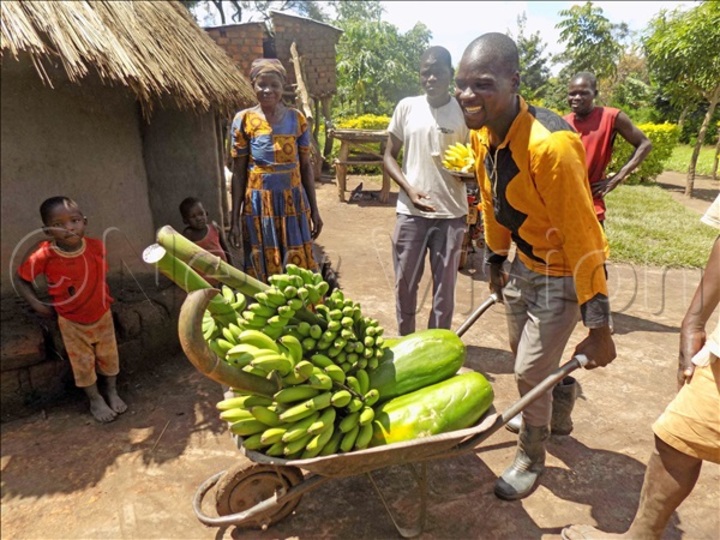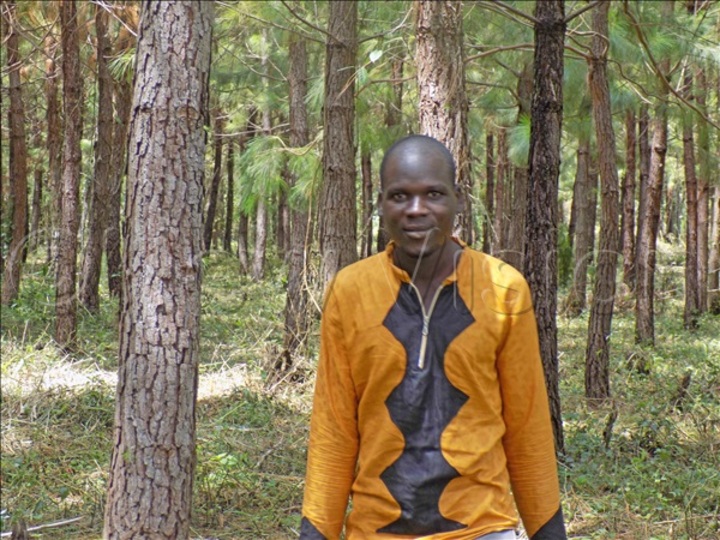Coffee farming luring school drop outs back to school
After completing Senior Six in 2013, Jacob Ojok, did not see himself joining university because there was no source of funding that could sustain his education.
The only investment he earned from - sugarcanes - which he planted while in Senior Four could not help much. From the sugarcane he earned sh400,000.
Having acquired some knowledge in treeplanting from officials at the National Forestry Authority at Unyama, where Ojok lived with his father, he decided to practice the same in Alaro village, Alaro sub-county in Nwoya district.
"I started farming for money in 2011 when I was in Senior Four. I used to plant sugarcane in a swamp. I would sell the cane and pay school fees while saving some.
When I was in Senior Six, I had some sugarcane that I had planted to get some money that would take me to university. When results came back, I sold the sugarcane and only earned sh400,000," he narrates.
Since the money was too little for university tuition and related costs, Ojok decided to invest it in growing pine trees. For pine, it was an easy task because he had prior knowledge on how to grow it, having stayed in a refugee camp at Unyama Abera forest.

While, there, Ojok says they used to accompany officials from NFA and they too got to learn some basics.
"I used that money to buy pine tree seedlings at sh400000 which we planted on three acres of land because we already had some knowledge on tree planting which we acquired while staying in a refugee camp near the forest called Unyama Abera Forest," he said.
While the pine was growing, a neighbour came along and was impressed by the management of the forest. He therefore contracted Ojok and his team to plant for him pine on seven acres.
For the seven acres, they were paid sh1.8m for lining, marking, setting, pitting and the actual planting of the trees, explains Ojok.
From the tree planting deal, they used sh500,000 for purchasing banana suckers, each at sh2,500, which they planted in more than three acres, although he cannot recall the exact size of land that time and remained with some balance.
"After buying suckers, we still had a balance. My elder brother and I didn't know that Uganda Coffee Development Authority (UCDA) was giving out coffee seedlings. So we bought some from a nursery operator by the road side, but these were not growing well," he recalls.
UCDA's involvement in Ojok's farm
While they were still wondering how to make the coffee seedlings they had at hand productive, they got some good news from their father, Labeja Oto, who informed them that UCDA was giving out free coffee seedlings so they did not have to spend more money, purchasing seedlings.
Ojok explains further that his father directed them to UCDA offices in Gulu town, which he immediately approached to understand procedures involved in getting seedlings.
That is when officials from UCDA visited his area to assess the soils and their viability for coffee production. So in 2015, Labeja was taken on by UCDA for training and related procedures involved in coffee production before he was given the first seedlings.
During the training, they were taken through the process of growing coffee to the time of harvesting the beans.
Pests and disease management, and other best farming practices needed by coffee plantations were handed down to the Ojok and his group.

After the training, around 2016, Ojok was given the first seed for developing seedlings. In addition to seedlings and training, Ojok was given polythene pots used in seedling production, which seedlings he sold through UCDA to other farmers.
"I planted on three acres and in 2017. From that investment, I was able to earn sh3.5m because it was just the start, but the next financial I supplied more and I expect sh31m," says Ojok.
Part of the money was used for labour due to the fact that the farm was expanding from the five acres and now to seven acres. Apart from labour and some basic needs at home, some money was used for purchasing a second-hand motorcycle to help in monitoring activities on the farm.
"When I am paid that sh31m, I will go back to school. I will not study agriculture but mechanical engineering as my brother manages the farm because we have been working together," he adds.
In addition to the support from his brother, Ojok has been able to succeed with the help of all family members, including his mother, who is involved in the harvesting, drying of coffee beans and ensuring that there is always lunch whenever her sons are on the farm.
Impact on the community
Much as he suffered to succeed in farming, Ojok has initiated a training programme for other youth interested in farming. Most training is conducted from his compound and the most recent training focused on coffee growing, which attracted a group of 50 youth from within his village.
"Some of the youth have started with bananas - are buy suckers from me - some want to try out coffee seedling production and some have already started," he added.